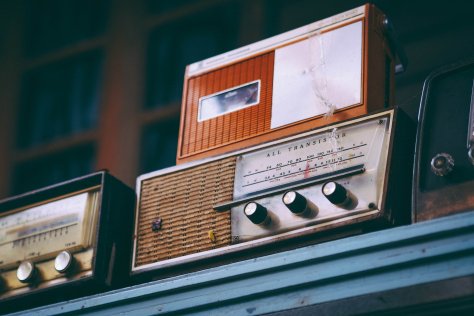
The idea of capturing a lecture isn’t new. Even before the advent of dedicated lecture capture systems being installed across the campus some lecturers (and some students) would record the lecture onto cassette tape.

Though we talk about the lecture in higher education, there isn’t really a standard lecture across the different cohorts and subjects of the undergraduate degree. A mathematics lecture is not the same as a art history lecture, nor is it akin to a lecture in macroeconomics. Even within mathematics different topics will require different approaches.
In reality modern lectures are not really monologues anymore, lecturers will be bringing in visuals, video, interactions, engagement, discussion, and Q&A sessions. However these are not easily captured and as students engage with lecture recordings, they will focus on the core of the lecture which will be in essence a monologue and aspects of the discussion.
Are lectures still valuable? Lecturers and students seem to think so. They are quite a cost-effective way of teaching.
There is something also about the eventedness of the lecture. The coming together of a group of people for a common purpose. The social interactions that happen before, during, and after the lecture. The sharing of an event is something that is more challenging to recreate from a recording.
However there is still value in recording a lecture. The facility to review and replay a lecture has value for some. For those that missed the lecture, the recording is probably a better choice than not seeing the lecture. For those with different needs, for example English is not your first language, having access to the recording will help if they didn’t get it the first time, or missed the lecture. You can also add close captions to a recorded lecture, making it more accessible than it was in its original format.
Of course a recording of a lecture for many is not as good as the live lecture itself. A lecture recording is a compromise, you can’t put your hand up when watching a recording for example. You miss out on those social interactions that happen in the live in-person experience.
Finally is a lecture recording the best way to record the lecture. Is there a way of capturing a lecture differently?
The first thing to reflect on, is the video or images needed? Could you remove the visual element (or provide it in a different format) and focus on the audio only? Make this an audio recording for example. Well, possibly make some of the lectures audio recordings.

Rarely when accessing content on different media, do people listen to monologues. That’s not to say there isn’t value in a monologue, but a recorded monologue misses out on the affordances that you can have when creating a recorded piece for a course. Also the mental discipline to listen to a one hour (or even two hour) recorded lecture is challenging for some. Reflecting from an audience perspective, it might be better to create two or three shorter audio recordings rather than one big one. It might result in a fresher better recording than one which tires itself out. Also think about the student, will they have the time to listen to a 60 minute recorded lecture? You may think you are an amazing and engaging presenter and raconteur; the reality is maybe do something shorter and to the point. Breaking the podcast into two shorter recordings may allow them to be more accessible to the students, they could listen to them as they do something else, physical exercise for example. These could be released together or split during the week and again and follow it with a week long asynchronous online chat discussing the topics and content. Visual resources could be provided in advance or alongside the audio recording of the lecture.
Another option is to think differently and instead of recording a lecture, create an audio recording that is more akin to a radio programme or a podcast. The format and structure of a podcast or a radio recording is different to that of a lecture. Often they take form of a conversation or a panel discussion with multiple participants. This can be challenging to organise, but is something to reflect on.
Capturing a lecture isn’t a new idea, however capturing a lecture may not be the optimum way of delivering a recorded version of the in-person session.













